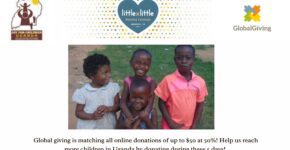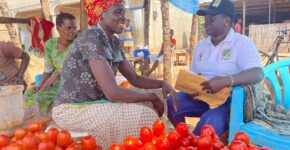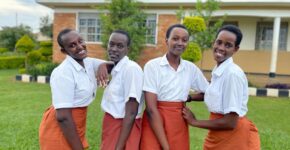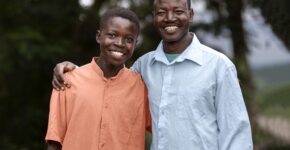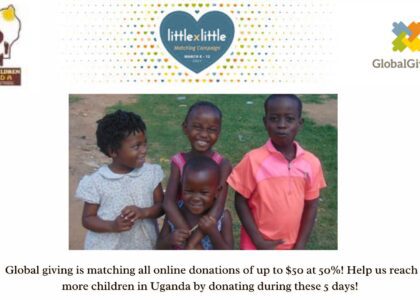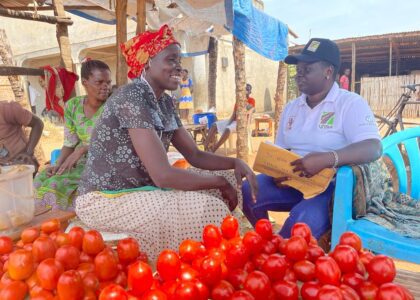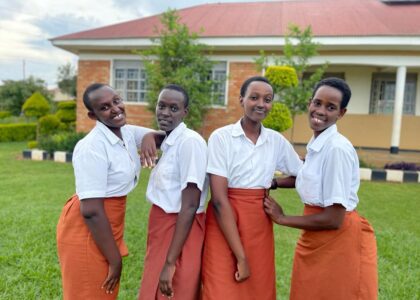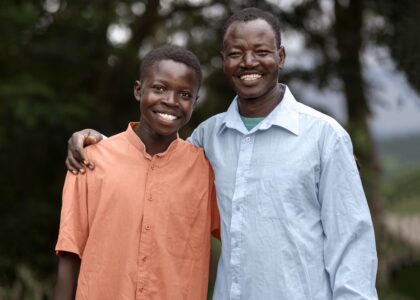Event Date: Thursday 15th , November 2018
Background
Child marriage is a global problem that impedes the development, wellbeing and life options of affected individuals and their families. In the past ten years child marriage has emerged as one of the neglected human rights violations and has only recently started to receive global attention. The situation analysis of Child Poverty and Deprivation in Uganda 2014, rates Child Marriages at 57%, Northern Uganda at 59%, followed by the Western 58%, in East Central 52%, West Nile at 50%, Central at 46%, South West 37% and Kampala at 21%.
FGM is linked with child marriage and both can be a sanctioned form of child sexual abuse. Child Marriage and FGM are causes for the increased violence against children, disproportionately affecting more girls compared to boys. Besides these harmful traditional practices (HTPs), Uganda also has other poor reproductive health indicators such as; high maternal mortality, low contraceptive use and inadequate allocation of resources to education, health and social services, which are barriers to positive reproductive health outcomes.
Significant progress has been made in efforts to stamp out child, early and forced marriage. In September 2015 the UN General Assembly agreed to a target of eliminating all harmful practices, such as child, early and forced marriage and female genital mutilation under Sustainable Development Goal number 5.3. In 2014, AU commissioned a campaign to end child, early and forced marriage in one generation. At the national level, the government of Uganda has taken steps to enact national laws, policies and frameworks that define internationally acceptable legal age of marriage, and outlaw harmful traditional practices such as female genital mutilation. However, when it comes to CEFM Uganda is yet to enact the Marriage Bill which will harmonise Ugandan marriage laws with regard to the minimum legal age of marriage as it stands the Marriage of Africans Act (1904) Section 5 CAP 253; Customary Marriages Registration Act (1973) Section 11; and section 32 of the Hindu Marriage And Divorce Act (1961) permit underage marriage of girls.
In spite of these great admirable steps, many challenges remain and much more need to be done. Violation of the human rights of girls and young women through child marriage and other harmful traditional practises, and the poor unequal access for girls and young women to opportunities for growth and development continue unabated in Uganda. In Uganda, most regions especially in rural areas still having girls marrying at an early age and in the Karamoja region FGM is still being practiced with the perpetrators ferrying the innocent girls into Turkana in Kenya for mutilation.
The girl’s summit will identify challenges that continue to impede this agenda and take practical evidence-driven actions to shift the trend.
Urgent actions are therefore needed to shift the negative trend and secure lives and future of millions of girls and young women in the continent. It is against this backdrop that the Uganda national Girl’s Summit is proposed for 30th November 2018 to provide a national platform where key actors led by government, civil society and private sector will convene, take stock of progress made in advancing ending child marriage.
The forum will also call on national leaders to not only commit more to harmonising the minimum age of marriage but also ensure clear implementation plans for existing laws and policies on ending child, early and forced marriage including harmful traditional practices. The national movement must now shift from raising awareness and making national commitments to ensuring that commitments are implemented to achieve tangible change in the lives of girls. Work needs to be scaled up, coordination improved, and more support given for community based efforts. National strategies need to be properly costed, funded and implemented. We also need a better understanding of what really works or is working. Scientific studies, proven pilots and successful community based initiatives need to be shared and lessons drawn to inform scale up and replication. Voices of girls affected by child marriage nationally need to be heard and responded to.
GOAL & OBJECTIVES OF THE SUMMIT
The National Girl summit will provide a platform where government (representatives from the executive, judiciary and legislature), civil society, UN agencies, private sector, academia, religious leaders and traditional leaders will meet to discuss and develop a national plan of action toward realizing the human rights of girls in Uganda. The theme for the Uganda Girls Summit is
Securing Uganda’s future; a time to move from commitment to implementation in the campaign against child marriage and female genital mutilation
Specific objectives of the National Girl’s summit include;
- Assess the progress made by the government of Uganda in fulfilling their international, regional and national commitments and obligations toward eliminating child marriage and FGM
- Share good practice (evidence driven) including undocumented/unpublished research about what works in eliminating child marriage and FGM
- Create a platform to hear the voices of children affected by child marriage and FGM
- Strengthen coordination and partnership among organisations, partners and donors working to end harmful traditional practices and other human rights violations of girls
EXPECTED OUTCOMES OF THE REGIONAL GIRLS SUMMIT
By the end of the one-day national summit, the following outcomes are expected to be achieved;
- Increased political commitment by governments and national leaders on expanding policy, financial and other support to enhance implementation of programs aimed at ending child marriage, FGM and HTPs in the region
- Increased visibility and participation of children affected by child marriage and FGM in the region
- Strengthened learning and coordination among organisations and partners working to end child marriage, FGM and HTPs in the region
- Increased opportunities for funding efforts which prevent child marriage and FGM, and support married girls and grassroots groups working directly with those affected.
- Enhanced national level advocacy action on ending child marriage and FGM
- Creation of a national Plan of Action to end child marriage and eradicate FGM by 2030
- Increased political support for the harmonization of the minimum legal age of marriage at 18 years.
STRUCTURE OF THE NATIONAL GIRLS SUMMIT
The conference is expected to attract delegates from various Uganda government ministries and departments, CSO’s and UN agencies. The Summit will be a one-day conference that will involve plenary, focused group discussions and at least two high level panel discussions facilitated by experts, leaders and known civil society advocates in Uganda.
CONVENERS OF THE NATIONAL GIRLS SUMMIT
The national Summit is convened primarily by the Girls Not Brides Uganda which is the Uganda National Alliance to end child Marriage. In terms of funding and other support for the national summit, we anticipate to mobilize resources from various sources including private sector, UN agencies and NGOs.

